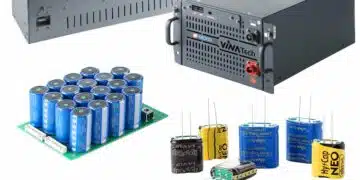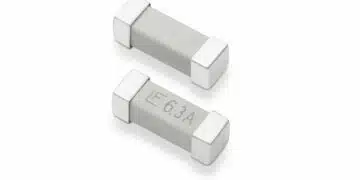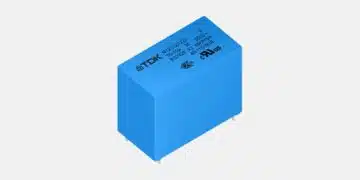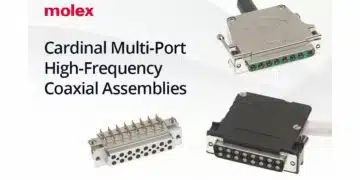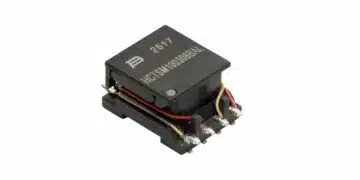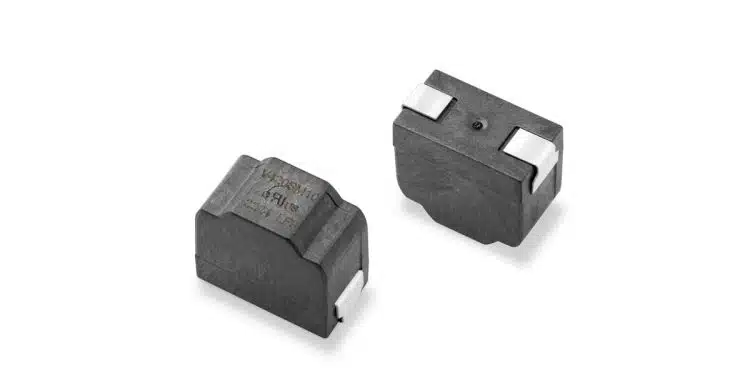Littelfuse, Inc., an industrial technology manufacturing company empowering a sustainable, connected, and safer world, today announced the SM10 Varistor Series, a revolutionary Metal Oxide Varistor (MOV) designed to provide superior transient surge protection in automotive electronics, electric vehicles (EVs), and various other applications.
This latest addition stands out as the first surface-mounted MOV varistor device compliant with the AEC-Q200 automotive standard, capable of withstanding high operating temperatures and offering ultra-high surge current handling in a compact package.
The SM10 Series Varistor is a game-changer in the industry, offering:
- High Operating Temperature: Able to withstand temperatures up to 125 degrees Celsius, ensures reliability in harsh conditions.
- AEC-Q200 Compliance: Meets rigorous automotive electronics standards, suitable for Electric Vehicles (EVs) and charging stations.
- Ultra-High Surge Capability: Excellent repetitive surge capability handles up to 40 pulses of 6 KV / 3 KA surges, significantly extending product reliability and lifespan.
- Compact Design: With dimensions of 15.7 mm x 8.5 mm x 14 mm, it saves valuable PCB surface space and is ideal for automated SMT PCB assembly processes.
- Wide Voltage Rating: Ranging from 130 Vac to 625 Vac, accommodating a broad spectrum of electronic applications.
“The SM10 Series Varistors effectively protect electronic circuits against multiple transient voltage surges with ultra-high surge handling capability,” states Johnny Chang, director of product management at Littelfuse. “They are AEC-Q200 compliant, enabling end-products to work in harsh ambient environments for longer lifetimes.”
Amy Chu, global product manager at Littelfuse, adds, “The vertical surface-mounted SM10 Series Varistors enable electronics designers to realize a ‘SMT components only policy’ for primary side circuit surge protection. Their compact size and ability to replace through-hole devices allow for fully automated and SMT PCB assembly processes.”
The SM10 is ideal for a variety of demanding applications, including:
- Automotive electronics
- Electric vehicles and charging stations
- Building automation
- Appliances
- Consumer electronics
- Power storage systems
- High-end power supplies
Compared to existing solutions, the SM10 Series offers unparalleled performance with its high operating temperature, excellent repetitive surge capability, and compact size. This combination makes it an attractive option for automotive, appliance, and building automation industries requiring reliable high-surge varistors.


